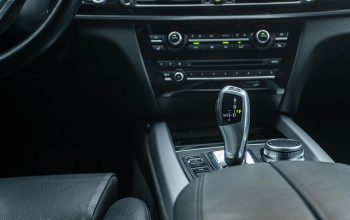A vehicle history report is like a car's medical record, revealing accidents, repairs, and insurance claims to help buyers avoid scams. Compiled from various sources, these reports offer an all-encompassing view to protect consumers. In a competitive market, dealers may engage in fraudulent practices like odometer tampering or falsifying records. To combat this, thorough checks are essential; combining free VIN checks with paid, reputable vehicle history report services provides a detailed view of a car's past, including accidents and suspicious activities, empowering informed purchasing decisions.
Buying a car is an exciting step, but it’s crucial to look beyond the gleaming exterior and consider its past. Recent trends expose a growing dark side of the auto industry, with fraudulent practices like odometer tampering costing unsuspecting buyers thousands. This article guides you through the intricate world of vehicle history reports, shedding light on common frauds such as odometer manipulation. Learn how comprehensive reports can reveal insurance claims, maintenance records, and more, empowering you to make informed decisions and protect your investment from potential pitfalls.
- Understanding Vehicle History Reports
- Common Fraud Practices in Car Sales
- The Role of Odometer Tampering
- Insurance Claims and Their Impact
- Maintenance Records: What to Look For
- Free vs. Paid VIN Checks
- Protecting Your Investment: Best Practices
Understanding Vehicle History Reports

A vehicle history report is like a medical record for cars, detailing its past and present condition. It offers insights into whether the car has been in any accidents, major repairs, or even insurance claims. This information is crucial as it helps buyers avoid potential scams, such as odometer rollback, where the mileage is illegally altered to make a vehicle seem younger and more valuable.
These reports are generated by aggregating data from various sources, including state motor vehicle departments, insurance companies, and private reporting agencies. They provide a comprehensive overview of a car’s history, allowing buyers to make informed decisions. By accessing this data, consumers can protect themselves from buying a lemon or a car with hidden issues that could lead to costly repairs or safety hazards.
Common Fraud Practices in Car Sales

In the competitive car sales landscape, unscrupulous dealers have resorted to various fraudulent practices to pad their profits. One of the most common and insidious is odometer tampering, where the mileage on a vehicle’s odometer is illegally altered to make it appear younger and more valuable. This deceptive tactic can cost unsuspecting buyers thousands of dollars in repair costs and reduced resale value. Similarly, falsifying maintenance records or concealing previous insurance claims is another way dealers try to hide potential issues or defects that could significantly impact the car’s performance and safety.
These fraudulent activities highlight the importance of thorough vehicle history checks for any potential buyer. While free VIN (Vehicle Identification Number) checks offer a starting point, their accuracy can be limited. Combining these free services with paid subscriptions to reputable vehicle history report providers is recommended by industry experts to gain a comprehensive view of a car’s past, including any accidents, damage, or suspicious activities that may have gone unnoticed otherwise.
The Role of Odometer Tampering

Odometer tampering is a deceptive practice where the mileage on a vehicle’s odometer is illegally altered, often to make it appear younger and more valuable. This fraudulent activity has become increasingly common, as unscrupulous sellers attempt to maximize profits by hiding a car’s true history. A simple twist of a dial or a digital manipulation can change a vehicle’s displayed mileage, making it seem like a 5-year-old car is actually a well-maintained 2-year-old model.
Such tampering can have severe consequences for buyers. A car with an altered odometer may have underlying issues due to its true age, leading to unexpected mechanical problems and costly repairs. Moreover, it denies potential owners access to essential information about the vehicle’s previous usage, service history, and any accidents that could impact its safety and reliability.
Insurance Claims and Their Impact

Insurance claims play a significant role in a vehicle’s history, offering valuable insights into its past. When a car is involved in an accident, it typically results in an insurance claim, which can impact its resale value and overall condition. Each claim, especially those involving damage to critical components or multiple incidents, leaves a mark on the vehicle’s record. These claims may indicate potential safety issues, mechanical problems, or even signs of past fraudulent activities like odometer rollback.
Buyer caution is advised when a car has had numerous claims, as it might suggest recurring issues or an attempt to conceal damage. Insurance companies carefully document these claims, providing a detailed report that can be accessed during a vehicle history check. Understanding the nature and extent of previous insurance claims is crucial for buyers to make informed decisions, ensuring they’re not inadvertently purchasing a car with hidden problems or a questionable history.
Maintenance Records: What to Look For

When examining maintenance records, look for consistency and regularity. A well-maintained vehicle typically has service intervals that align with the manufacturer’s recommended schedule. Check for receipts or digital records of routine services like oil changes, tire rotations, brake checks, and air filter replacements. These should be fairly consistent over time.
Pay close attention to any unusual gaps in the maintenance history. An abrupt stop in regular servicing could indicate neglect or potential fraud. Similarly, look out for extensive work done at once; major repairs or a cluster of services all within a short period might suggest that the vehicle was in an accident and parts were replaced, rather than genuine wear and tear.
Free vs. Paid VIN Checks

When considering a car purchase, many buyers opt for free Vehicle Identification Number (VIN) checks as a preliminary step. While these free services are accessible and provide basic information, they often fall short in delivering a comprehensive vehicle history report. Free VIN checks typically reveal details like the car’s make, model, year, and current owner, but they may not include crucial historical data such as insurance claims, accident reports, or odometer readings.
In contrast, paid VIN check services offer a more thorough examination of a vehicle’s past. These services access extensive databases to provide detailed reports that can uncover hidden issues like odometer tampering, salvage titles, and previous accidents. While the initial cost may be a consideration, paying for a comprehensive report could save you from potential financial losses and ensure you’re making an informed decision when buying a car.
Protecting Your Investment: Best Practices

Protecting your investment starts with thorough research. Before buying, run a comprehensive vehicle history report using a reputable service. Check for any previous accidents, insurance claims, and maintenance records. A vehicle’s odometer reading should also be verified to ensure it hasn’t been tampered with.
To stay ahead of fraudulent practices, consider combining free VIN checks with paid services. While free checks provide basic information, paid reports offer detailed insights into a car’s history. This dual approach ensures you have a well-rounded understanding of the vehicle’s condition and past, safeguarding your investment from potential risks.
When purchasing a car, prioritizing transparency is key to safeguarding your investment. By combining free VIN checks with paid vehicle history reports, you gain valuable insights into a car’s past, including insurance claims, maintenance records, and potential fraud like odometer tampering. Don’t overlook these steps; they’re essential to making an informed decision and avoiding costly surprises. Remember, knowing before you buy is the best way to protect your investment and drive with confidence.



